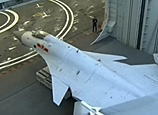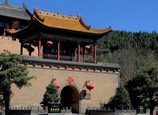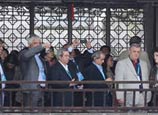
The third draft of China's Tourism Law, which was delivered to lawmakers on Tuesday, seeks to curb price inflation at scenic spots — a trend that is making tourists nationwide unhappy.
The draft proposes strict controls on the costs of tickets to access natural scenery and ancient relics.
Such areas, the draft said, should hold hearings before raising prices to solicit opinions from tourists and business owners on whether the charges are necessary and reasonable.
The draft law, which was discussed in August and December last year, is the country's first legislation covering the industry.
Li Fei, deputy director of the Law Committee of the National People's Congress, the top legislature, said the latest draft sets rigid procedures for raising prices as many members of the NPC Standing Committee said price appreciation has been "arbitrary".
The proposal was delivered after a high-profile price-raising dispute in Fenghuang, Hunan province, this month. The old town, known for its well-preserved architecture dating back to its founding more than 300 years ago, has started to collect an entry fee of 148 yuan ($24) from travelers. Entry used to be free.
The city government, which argued that the move was necessary to limit swarming tourists and to protect architecture, held no hearings before raising the price.
Apart from the recent price dispute affected by the price adjustments in Fenghuang, many other tourism sites increased the prices of their entry fees. Emei Mountain, the well-known scenic area in Sichuan province, raised its entry fee for peak season from 150 yuan to 185 yuan, and from 90 yuan to 110 yuan for the off-season.

















 China’s weekly story
China’s weekly story
(2013.4.13-4.19)


![]()
